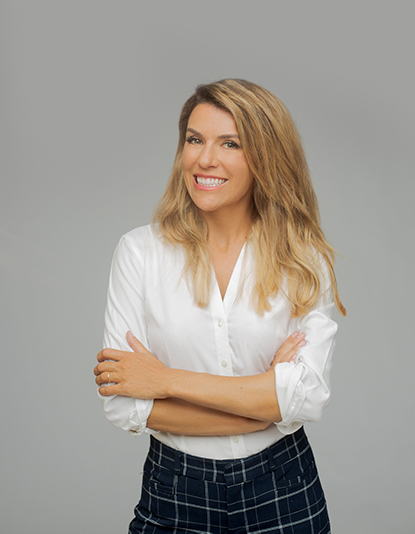
Lexi Novitske
Years in Tech
5
Current Role
Partner, V Africa Fund, Partner, Singularity Investments
Core Skills
I am investing in and partnering with African entrepreneurs that will change the world!
Interview Date
14th December, 2018
In 2012 Lexi moved to Nigeria, from the United States, believing that the country held immense untapped potential, having an under-penetrated consumer population, expanding infrastructure and online access, and an active entrepreneur network.
In 2014, Lexi launched Singularity Investments as the Principal Investment Officer, a venture capital vehicle backed by the Darwish family office, where she oversees the firm’s operations in Africa. Singularity lends its relationships and expertise to source extraordinary investment opportunities, while supplying the skills, resources, and capital to grow portfolio companies into industry leaders across the continent.
Lexi previously managed investments at Nigerian private equity firm Verod Capital Management. Prior to joining Verod, she was focused on Africa investments at Small Enterprise Assistance funds and in financial services at New York-based Sandler O’Neill Asset Management.
Lexi is a board member and advisor to several early-stage companies and faculty member and mentor to several accelerators and startup academies. Lexi is a CFA Charterholder and Kauffman Fellow.
Personal Links
What experiences led you to technology and how did you develop the skills to compete in the industry?
Several years ago I was working in Lagos, Nigeria at a private equity firm. I had already shifted my entire career to focus on investments in Africa, but I had started to notice a new trend: technology was building more connections between Africa and the rest of the world. The industry’s lean start-up model had made it cheaper to start a young tech business, and talented professionals were returning home to the continent to launch digital businesses that had the potential to make local industry more efficient, and leapfrog the infrastructure deficit.
Several years ago I was working in Lagos, Nigeria at a private equity firm. I had already shifted my entire career to focus on investments in Africa, but I had started to notice a new trend: technology was building more connections between Africa and the rest of the world. The industry’s lean start-up model had made it cheaper to start a young tech business, and talented professionals were returning home to the continent to launch digital businesses that had the potential to make local industry more efficient, and leapfrog the infrastructure deficit.
At the time, my knowledge of tech was basic, at best, but I had a thesis for what I believed would make the next wave of change on the continent – strong talent driving new tech models in Africa would generate the continent’s next wave of economic growth. Above all, I am proud of having enough conviction in that thesis during the early stages of growth in Nigeria’s tech scene, and stepping out of my comfort zone to lead the growth of Singularity Investments. I’m lucky enough to have had a partner and principal who also believed in that vision.
I also believe that we have built a firm that not only acts as an investor, giving solid returns to our investors, but is also a valuable partner to the companies we invest in. We believe in an entrepreneur-first investment strategy, and in supporting the best leaders to grow their businesses into dominant industry players.
How has your background helped/differentiated you in the tech industry?
Everyone has his or her own experiences that have driven their personal worldview. Investors often relate to people who are like them, and the business models that show applicability in investors’ current world are those that will resonate more deeply with them. I am doing business in a world that was only introduced to me six years ago. Although I feel I understand more and more about the local consumer and the environment investee companies operate in, I also recognise that I still have my own latent biases and limitations. I have learnt that the most important thing I can do to be a good investor is to ask others questions – be curious about what’s going on around me, be flexible to accept different viewpoints, and to be humble enough to admit when I’m wrong and adjust my own investment thesis accordingly.
The most important aspect I’ve come to learn about investing in early-stage companies is that it’s not about how much you can squeeze out on the investment terms or how you control the board – it’s about the entrepreneur. It really boils down to putting the best resources behind the team to support their vision. This might mean sacrificing terms to make sure the entrepreneur isn’t diluted and remains motivated to grow his/her company to its potential, giving your board seat to an industry expert, or taking a backseat role so that an investor that can bring operational expertise plays a lead role in the growth of the company. It’s important to understand your unique value as an investor and to commit to playing a role as a partner. But, in the end, it is the entrepreneur who will turn a start-up in to a success story.
What advice would you give to women considering a career in technology? What do you wish you had known?
Take risks. I am still risk adverse in decision making as it comes to my own life, especially when I compare myself with my male peers. (By the way this risk aversion to a point can make female-backed businesses solid investments). I have found, however, when I take a leap of faith, even though I feel I don’t yet have the skills or the confidence in myself it has always led to something better. I now believe failure is a gift that builds resilience and learnings – if there are no risks, and no failures, the foundation for success will never be as strong.



